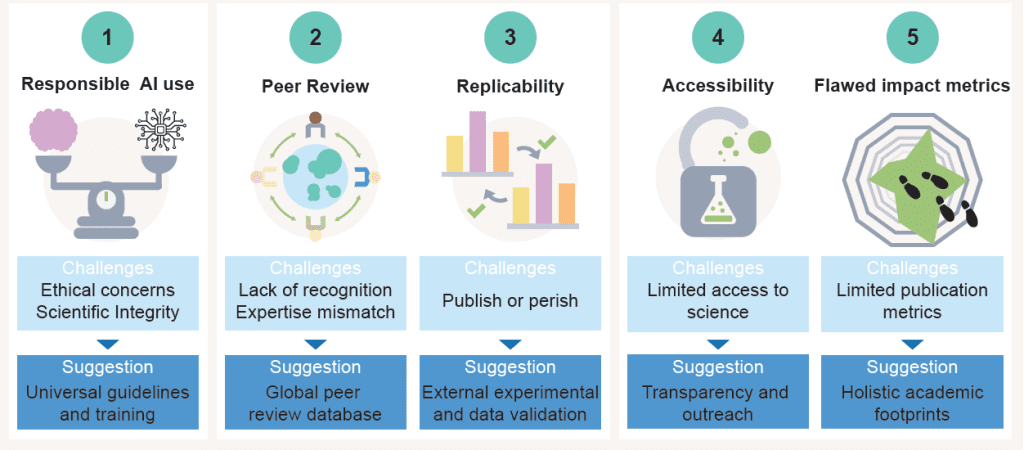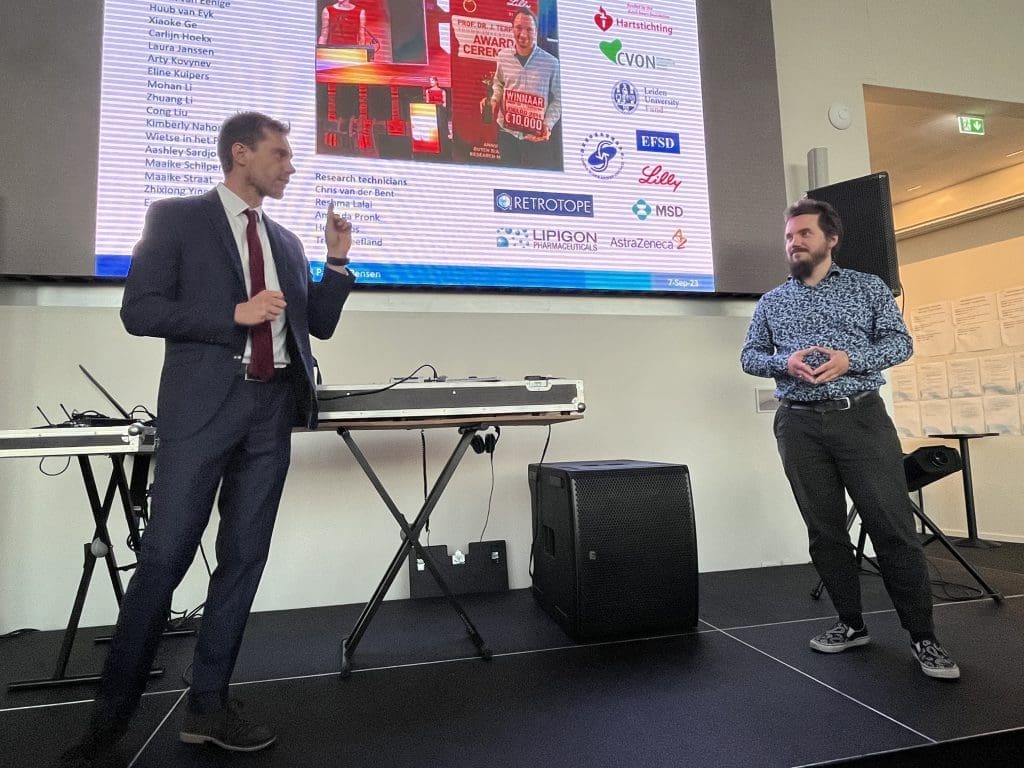
A recent comment in Nature Review Endocrinology, based on reflections from the DDEA Postdoc Summit 2023, advocates for changes in scientific publishing.
As part of the annual ‘Postdoc Challenge’, participants at the DDEA Postdoc Summit 2023 identified five key areas in need of consideration to rethink scientific publication practices.
This resulted in a comment recently published in Nature Review Endocrinology, titled “Our Future, We Decide: Five Ways to Reform the Scientific Publication Process”.
With scientific publishing remaining virtually unchanged for 300 years, Danish Diabetes and Endocrine Academy (DDEA) posed the following question for its 2023 Postdoc Challenge:
“Is the scientific publication, as we know it, dead?”
The published comment discusses five key areas to reform, each with suggestions for change:

We spoke to Daniel Ibsen, postdoc , and Morten Dall, platform manager. They were both co-chairs at the DDEA Postdoc Summit 2023, and were instrumental in the journey from idea to published piece.
At the DDEA Postdoc Summit, participants worked in teams to propose ideas for rethinking scientific publication practices, covering issues such as peer review, reproducibility, accessibility, and the impact of AI tools.
“At the summit, it was clear that this was a topic everyone was invested in, as publication practices are relevant for such a wide range of scientists,” says Daniel Ibsen.
“Yes, and we always see a great mix of participants at the DDEA Postdoc Summit, with everything from doctors to programmers and psychologists attending,” adds Morten Dall.

Following the summit, participants, organisers, and chairs worked on an opinion piece based on the central reflections from the challenge.
“We planned on creating an output from the start,” Daniel and Morten explain. “When we asked if anyone wanted to work on an opinion piece, the response was very enthusiastic, with every group being represented in the process. We also presented posters about the suggested solutions at meetings and conferences around Denmark to gather further input from the broader research community.”
The DDEA Postdoc Challenge gives early-career researchers a unique opportunity to explore transformative ideas. The exercise invites participants to envision solutions without constraints.
“It’s something I’ve always found exciting about the Postdoc Challenge. Sure, it’s easy to be cynical and dismiss ideas, but with this challenge, early-career researchers are given the chance to indulge and play along – if resources were unlimited, what would be the ideal solutions? And the participants really seize this opportunity,” says Morten Dall.
“We chose this topic to challenge the assumption that the culture around science is fixed when, in reality, it is a social construct. Take peer review, for example. It’s a cornerstone of scientific papers, but a journal like Nature only started using in the late 1960’s. This shows that scientific processes are not immutable, and we can decide to evolve them,” Morten Dall elaborates.
Reflecting on the challenge and the valuable contributions of each participant, the co-chairs expressed that, if they could, they would change one thing in the comment: listing all participants of the 2023 DDEA Postdoc Summit as co-authors rather than only mentioning them in a supplemental table.
Daniel and Morten agree that it would be amazing if the comment sparks broader discussions, but the primary drive was to get the ideas published.
“I view the comment as an amazing reference when meeting others willing to have this discussion. Now it’s out there, and we know that others have already tried to rethink these areas, so the conversation is bound to continue,” says Daniel Ibsen.
Daniel and Morten emphasize that early-career researchers are crucial for driving change.
“Early-career researchers are the future of science, and change often starts with new generations,” says Daniel.
For an extended version of the opinion piece, see Future diabetes and endocrine research leaders decide: Is the scientific publication, as we know it, dead?
Be sure to check out the podcast episode ‘Postdocs Talking’ on this topic: Should We Be Rethinking the Scientific Publication
Daniel Borch Ibsen
Postdoc, PhD, MSc Human Nutrition
Steno Diabetes Center Aarhus, Aarhus University Hospital and Department of Public Health, Aarhus University
Morten Dall
Platform Manager, Rodent Metabolic Phenotyping Platform, Novo Nordisk Foundation Center for Basic Metabolic Research, University of Copenhagen
Email: dall@sund.ku.dk
EAN: 5798 0022 30642
Reference: 1025 0006
CVR: 29 19 09 09